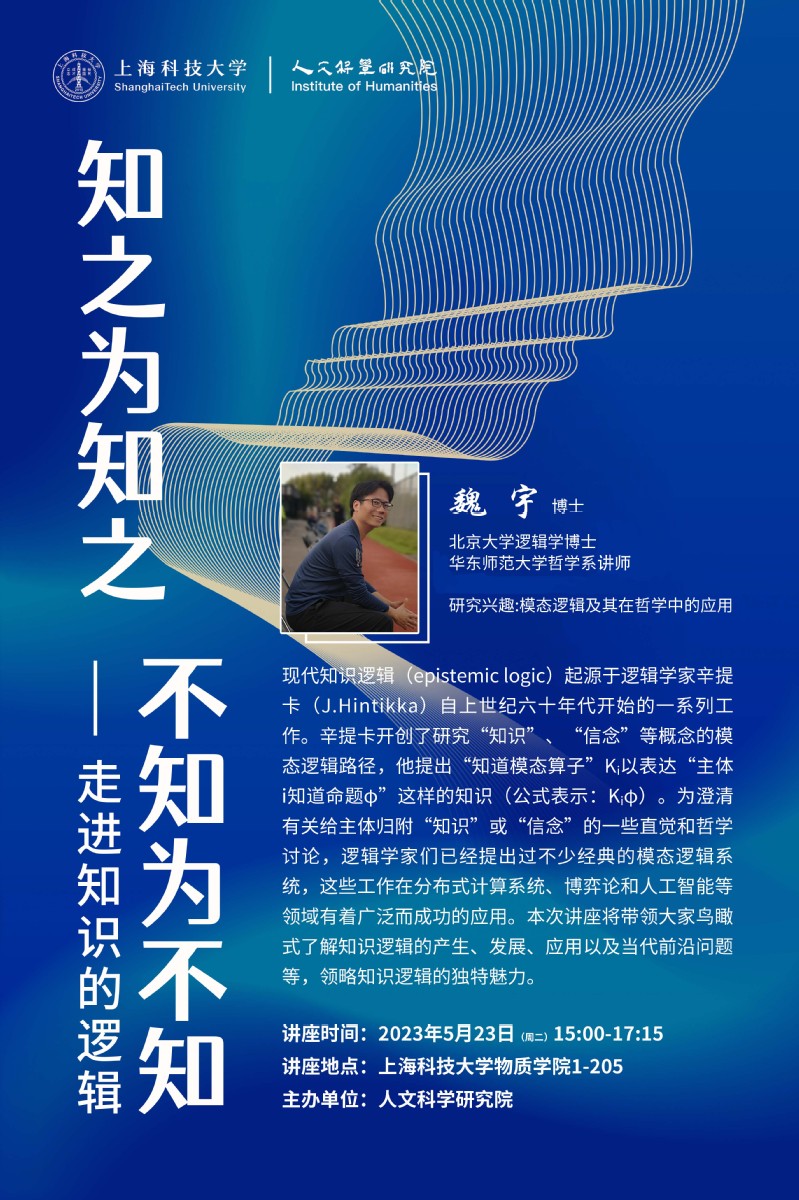Modern epistemic logic originated from a series of work by eminent logician J. Hintikka in the 1960s. Hintikka created the modal logic approach to study the notions of knowledge and belief. He proposed a knowing modality Ki to express that agent i knows that φ (in formula: Kiφ). To clarify several intuitions and philosophical discussions about “agent i knows/believes that φ”, logicians have proposed a number of classical modal logic systems, representative axioms including Kiφ→ Kiφ, ¬ Kiφ →Ki¬Kiφ. (Interestingly, they can be read as 知之为知之,不知为不知 (to know what you know, and to know what you do not know) respectively from the Analects of Confucius.) These efforts have wide and successful applications in distributed computing systems, game theory, and artificial intelligence, etc.

On Tuesday afternoon, May 23, 2023, the Institute of Humanities will hold a lecture entitled 知之为知之,不知为不知: A brief introduction to epistemic logic in Room 1-205 of the School of Material Sciences. This lecture will lead you to understand the generation, development, application and contemporary cutting-edge issues of epistemic logic from a bird's-eye view, and appreciate the unique charm of this field.
Time: 15:00-17:15, May 23, 2023
Location: 1-205, School of Materials, ShanghaiTech University
Inviter: Qiang Wang, Teaching Assistant Professor of the Institute of Humanities
Speaker introduction:
Wei Yu, PhD in Logic, Peking University, Assistant professor in Department of Philosophy, East China Normal University.
Research interests: Modal logic and its application in philosophy.
